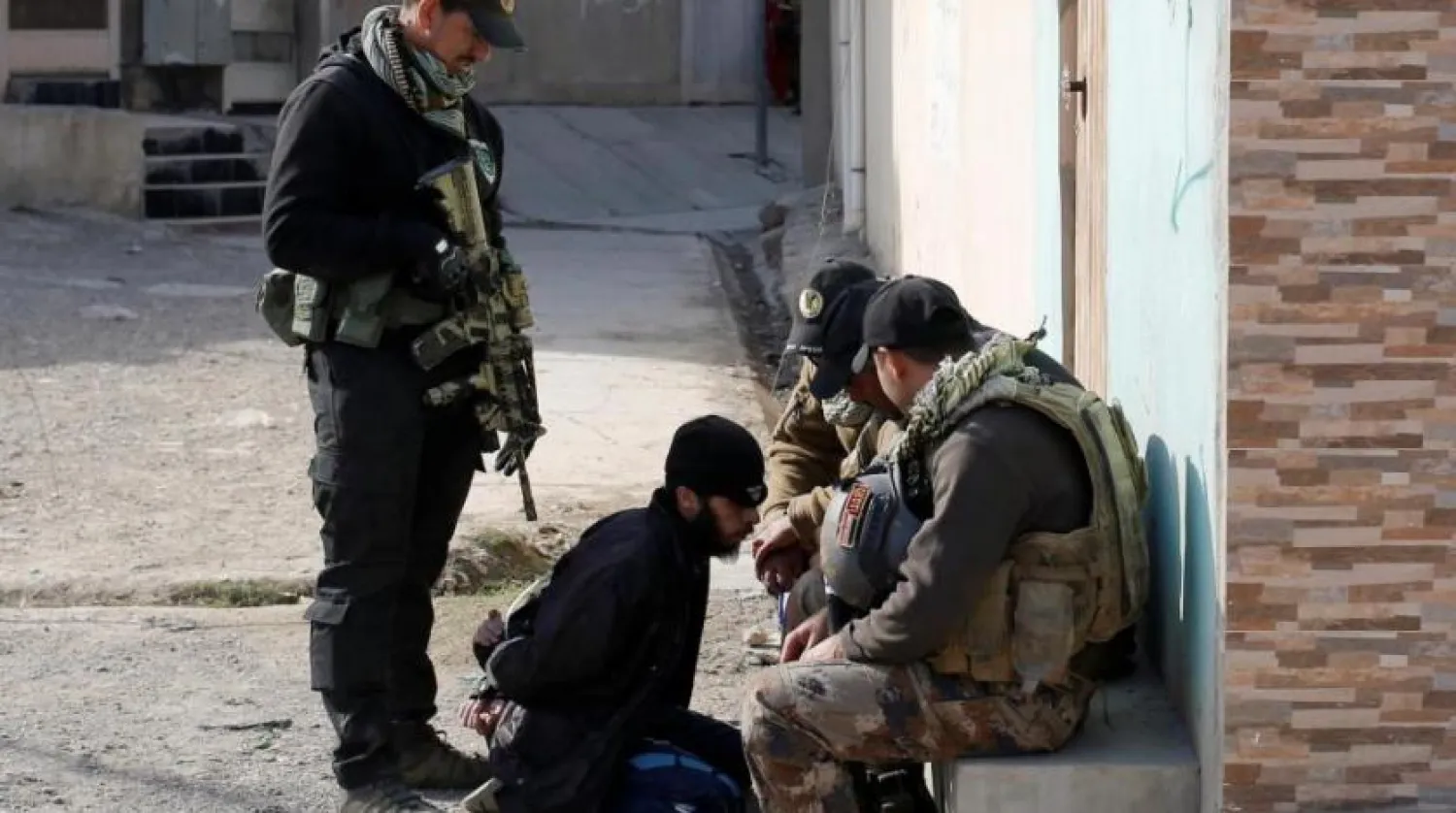The Iraqi National Security Forces thwarted an infiltration attempt of ISIS terrorists on the western border with Syria, in Nineveh.
The Security Media Cell issued a statement Monday, announcing that units of the National Security Agency received intelligence information about possible infiltrations in various spots. The intelligence teams set several ambushes and were able to arrest three terrorists, including a Syrian national.
During interrogation, they admitted to being members of the ISIS terrorist organization and that they participated in most of the battles against the Iraqi forces. Based on their confessions, the terrorists were planning to form new military detachments to carry out terrorist operations.
In addition, the intelligence agency announced that it arrested 10 terrorists in Saladin governorate, north of Baghdad.
The agency said in a statement that through continuous monitoring, its units arrested 10 wanted terrorists, in accordance with the provisions of Article 4 of the constitution, for their affiliation with ISIS in separate areas of the governorate.
The security units also coordinated with Sulaymaniyah security forces and arrested two terrorists while trying to flee to one of the neighboring countries. The units also seized a stockpile of ISIS ammunition on Makishifa island containing anti-tank missiles and missile launchers.
The recent infiltration attempts come as Iraq begins to legalize its relationship with the international coalition, in light of the increasing demands of pro-Iranian factions and its affiliated political forces for the withdrawal of US forces from the country.
Meanwhile, Diyala governorate remains one of the areas where ISIS cells, armed forces, factions, and militias are active given its demographic diversity.
Head of the parliamentary committee on immigration and displacement, Raad al-Dahlaki, believes that one of the main reasons behind the instability in the governorate is that the largest proportion of the Sunni residents had not returned to their areas.
Dahlaki indicated that militias prevent the return of the displaced to their homes, pointing out that the tribal disputes are an excuse for armed groups to gain control over the area.
The lawmaker called on the government to form a higher committee for the return of the displaced.
Security expert Fadel Abu Ragheef told Asharq Al-Awsat that ISIS has a plan to return to the forefront regardless of the losses it incurred over the past years until its defeat in 2017.
Abu Ragheef added that this organization is trying to take advantage of many factors in order to continue its operations, including the release of prisoners in Syria, and infiltration attempts on the Iraqi-Syrian border from Nineveh, which is still not fully controlled.
He believes that the terrorist organization will take advantage of anything in its favor to regain control.









